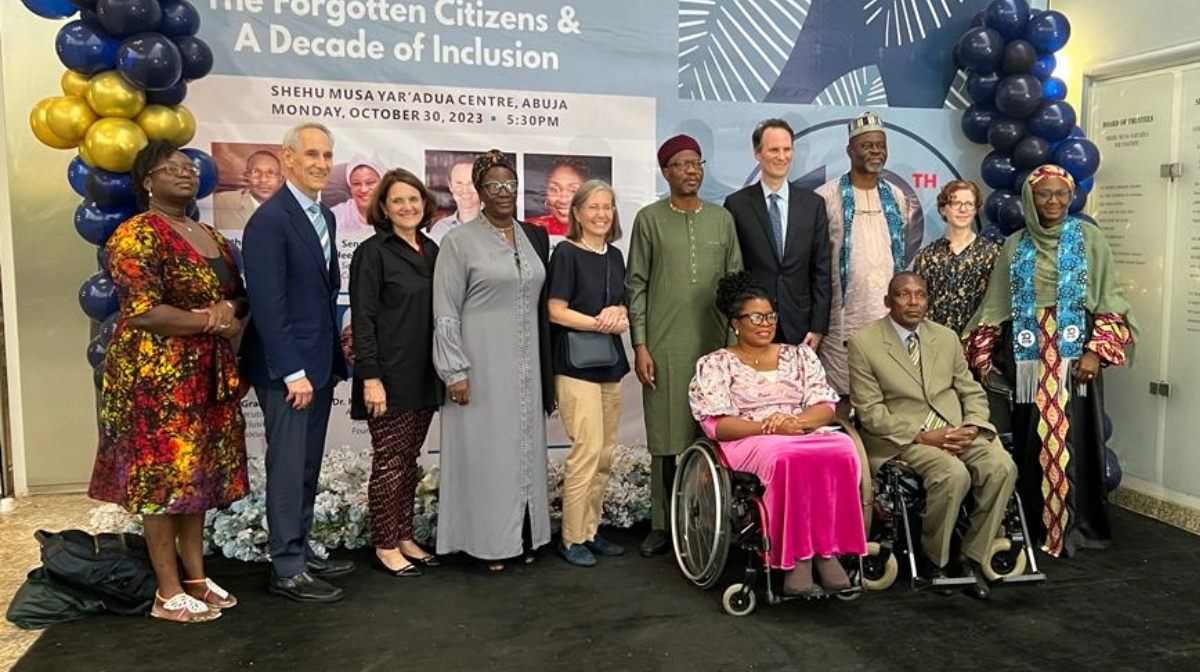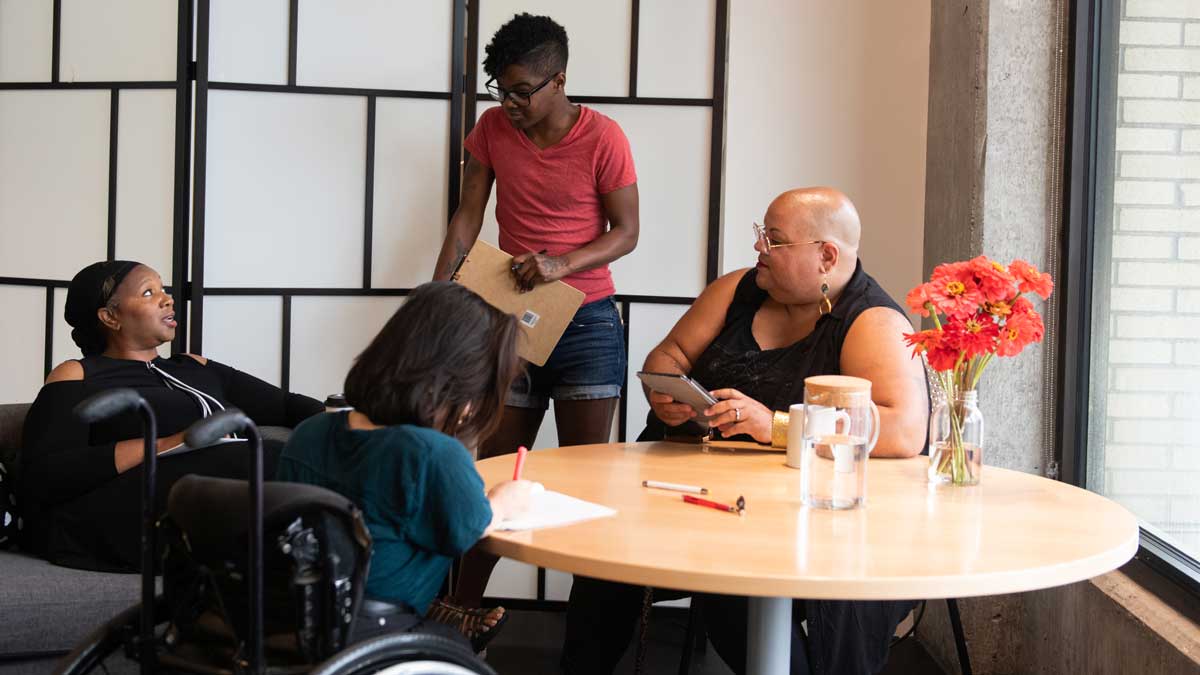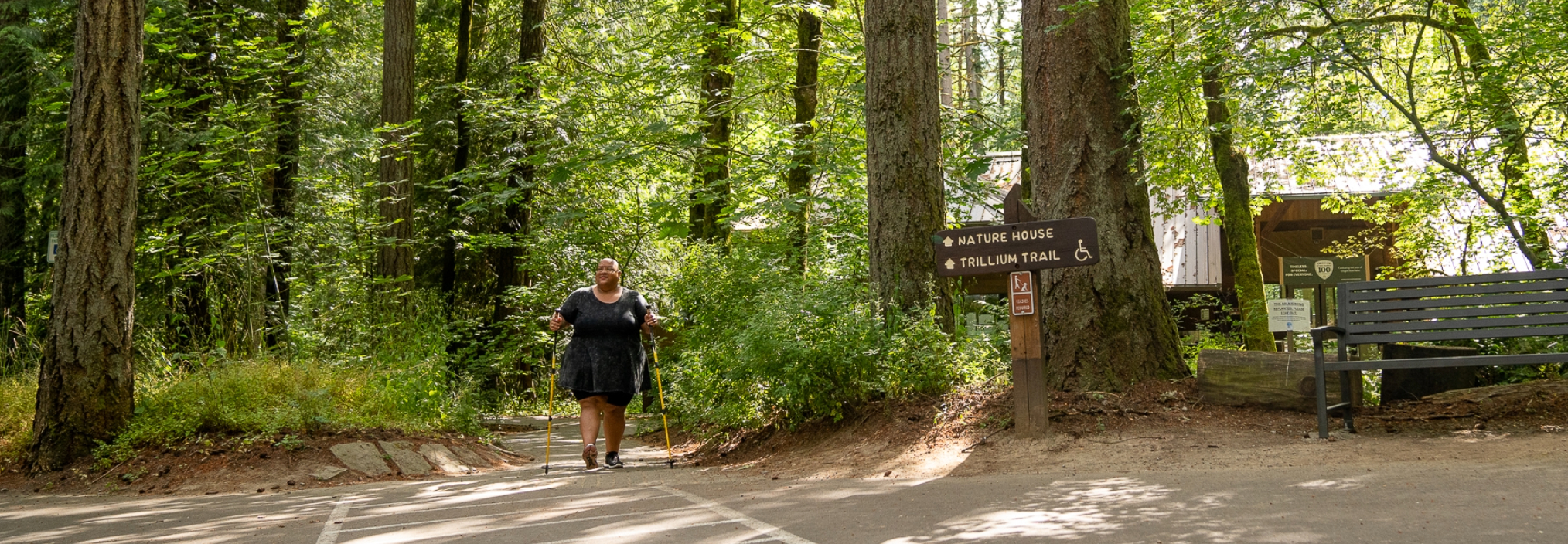In Disability Pride Month, John Palfrey shares our progress on efforts to bring a disability lens to our grantmaking, operations, and organizational culture.
All identities intersect with disability. In our lifetime, most of us will experience disability, and, in fact, most of us already have a loved one living with a disability. At MacArthur, considering disability and disability justice is part of fulfilling our value of Diversity, Equity, and Inclusion, a holistic approach to the intersectional identities of the individuals and communities we seek to serve.
July is Disability Pride Month, and on July 26, we mark the 34th anniversary of the Americans with Disabilities Act (ADA). It is a time to celebrate the disability community, reflect on our progress towards disability inclusion, rights, and justice, and recommit ourselves—as individuals and as an institution—to dismantling ableism.
With as many as one in four adults in the United States living with a disability, it is essential that our grantmaking includes a disability lens. It is just as important that we have an inclusive workplace culture and policies that ensure equitable treatment of Staff. With disability overlapping and often magnifying other forms of marginalization, including sexism, racism, and homophobia, this charge is even more important.
Applying Disability Justice in our Grantmaking
Since 2016, we have made 81 grants that have touched disability issues, totaling almost $38 million across eight programs and initiatives. I am proud of how our teams, in all our programs, are continuously improving their effort to emphasize disability inclusion, rights, and justice in our grantmaking.

MacArthur Staff members with representatives of the Inclusive Friends Association at the Public Policy Forum event "The Forgotten Citizens & A Decade of Inclusion." The event highlighted the Disability Inclusion Pledge and MacArthur's work to advance gender equity and social inclusion in Nigeria.
The On Nigeria Program centered persons with disabilities as we incorporated Gender Equity and Social Inclusion into the strategy, which has helped people hold government accountable under the Discrimination Against People with Disabilities Act. Our Journalism and Media Program is supporting work to shift the narrative on disability, moving beyond ableism to solidarity and liberation. The Criminal Justice team has worked to reduce the number of people with behavioral health conditions as well as other disabilities involved with local criminal justice systems as part of their efforts to address over-incarceration and racial and ethnic disparities in jails. And, our Technology in the Public Interest Program is supporting changemakers at the nexus of technology, disability rights, and justice through the DIF x Tech Initiative, housed at the Disability Inclusion Fund at Borealis Philanthropy.
Beyond the Basics
In 2021, we joined our peers in philanthropy to sign the Disability Inclusion Pledge from the Disability and Philanthropy Forum and the Presidents’ Council on Disability and Inclusion in Philanthropy.
The Disability Inclusion Pledge pushes the philanthropic sector to go beyond legal requirements. We know that ableism is a barrier to achieving diversity, equity, and inclusion, and ableism is not solved with baseline adherence to the ADA. We need to be committed to disability justice that goes beyond the ADA, and intersects with racial justice, as we work to create a more equitable future.
We know that ableism is a barrier to achieving diversity, equity, and inclusion, and ableism is not solved with baseline adherence to the ADA.
The pledge provides a roadmap for signatories to make progress on disability inclusion. Here are some areas where we have experienced progress and challenges:
- Staff and Board Training: In 2023, all of our Staff and Board completed disability inclusion training. This training centered dialogue and an acknowledgement of disability rights history as the starting point from which we should build our disability justice, rights, and inclusion knowledge and practice.
- Disability Grantmaking: We began to identify all grants that relate to disability issues by implementing new tags in our grants management system. This made these grants more visible and increased our conversations on disability rights, justice, and inclusion in grantmaking spaces.
- Data and Belonging: As we collect demographic data, like many organizations, we encounter challenges with Staff self-identifying as having a disability. Our Office of Equity and Celebrating Disabilities Affinity Group are working to simplify data collection on disability status to help make our organization a more welcoming and accessible space. It is my hope that, over time, Staff will feel more comfortable self-identifying as disabled and bringing their full self to their roles as leaders and colleagues.
Most importantly, the pledge has served as a tool for bringing disability justice, rights, and inclusion into focus across our organization. This has enabled shared learning from every department and program as they support our commitment to disability inclusion.
Finding Strength in Shared Experiences
For many employees with disabilities, navigating the workplace can present challenges, so the creation of our Celebrating Disabilities Affinity Group has been an important development towards making MacArthur a more inclusive organization. This Staff-created and -led group, co-chaired by Tom Dreixler and Kelsey Ganser, provides a safe space for employees to connect, share experiences, and advocate for inclusion.

Affinity groups can provide a sense of belonging, acceptance, and support to employees with disabilities. Credit: Chona Kasinger/Disabled and Here
“This affinity group is an essential part of MacArthur’s disability journey,” said Dreixler. “It has brought together Staff from across the Foundation and fostered a sense of belonging and acceptance. It gives Staff a support system, an avenue to advocate for improved accessibility and inclusion, and an opportunity to raise awareness of the issues that are affecting our lives as people living with disabilities or supporting loved ones with disabilities."
At the last Presidents’ Council on Disability Inclusion meeting, I had the opportunity to connect with disability leaders who have been building this movement for decades. They highlighted not only the struggle but the joy and tenacity of moving this work forward. I see this tenacity and joy in our affinity group today, and it is clear their efforts will make our culture more inclusive and affirming over time.
Changing policies and practices is a step in the right direction, but changing culture requires time and sustained attention.
In the years since we signed the Disability Inclusion Pledge, we have accelerated our disability justice learning and commitment, and we have much of which to be proud. We also have areas that require more work. We have learned that progress requires the commitment and effort of every department as well as a true partnership between leadership and Staff with lived experience. Changing policies and practices is a step in the right direction, but changing culture requires time and sustained attention. MacArthur is committed to continuing this important journey.



